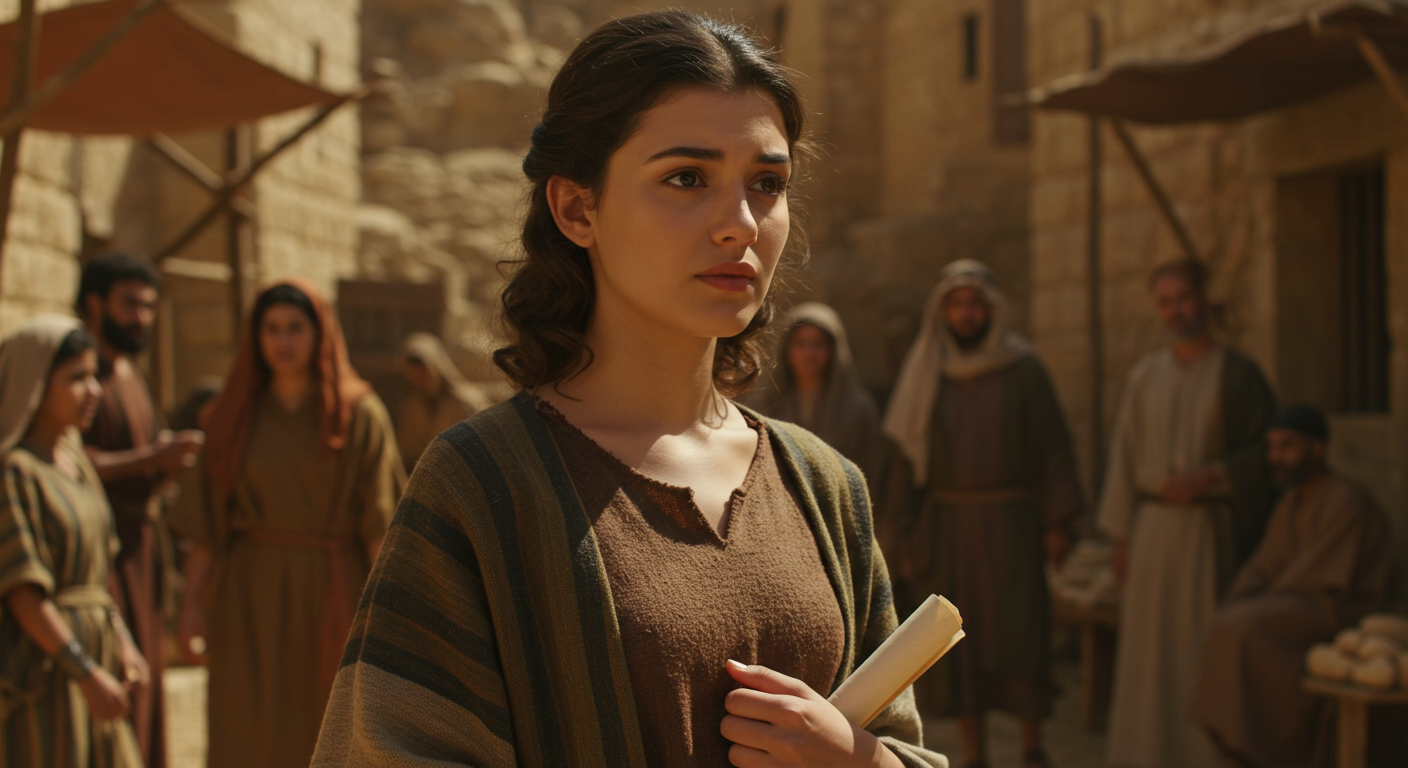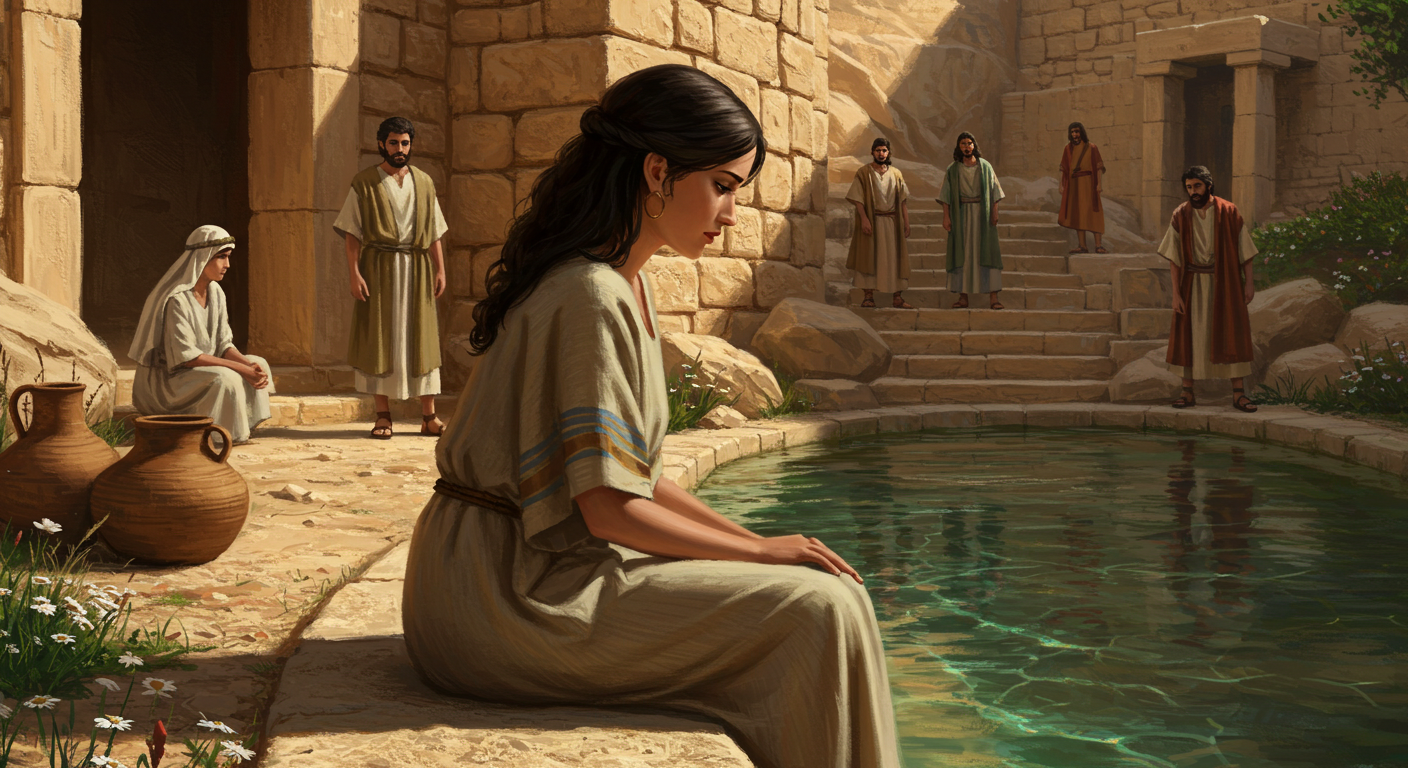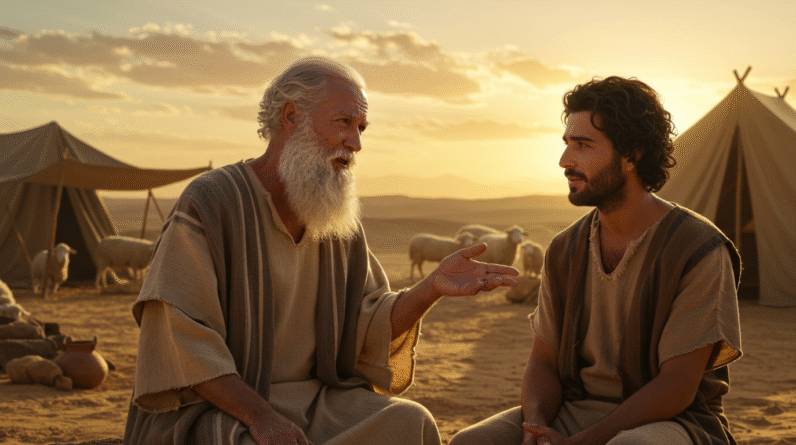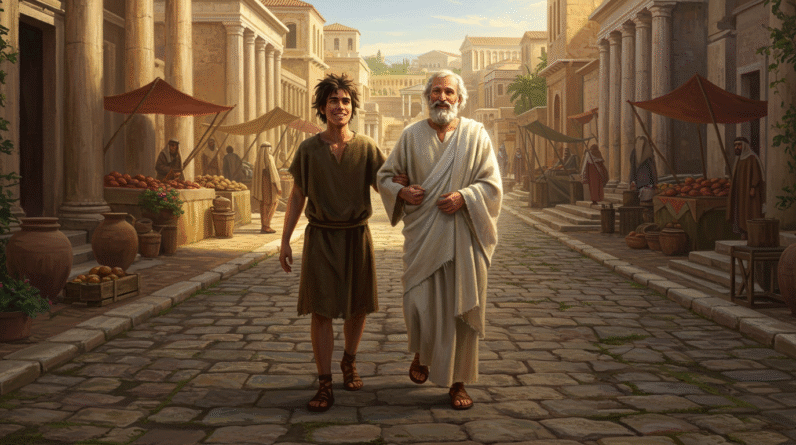Explore Tirzah’s courage in Numbers 27, where she challenges norms for her inheritance. A tale of justice and equality that resonates in today’s world.
Tirzah’s Inheritance: Lessons from Numbers 27

Introduction
Tirzah, a name tucked away in the folds of the Old Testament, emerges as a beacon of courage and determination. Alongside her sisters, Tirzah steps into a predominantly male-dominated society with an audacity as rare as it is inspiring. Her story is nestled within the book of Numbers and highlights a unique circumstance in which the daughters of Zelophehad, including Tirzah, approach Moses with a bold request to inherit their father’s property, a right traditionally denied to women of their time (Numbers 27:1-7). Tirzah’s narrative, though brief, significantly marks a turning point in the biblical inheritance laws and stands as a powerful reminder of justice and equality.
Their Story in the Bible
In the book of Numbers, Israel is on the brink of entering the Promised Land. It is at this juncture that Tirzah and her sisters—Mahlah, Noah, Hoglah, and Milcah—step onto the scene. Following their father Zelophehad’s death, they realize that they are at risk of losing his inheritance simply because there are no male heirs to claim it (Numbers 27:1-4). The audacity of these women to stand before Moses, Eleazar the priest, and the entire assembly to plead their case is both significant and courageous. They argue that their father’s name should not disappear simply because he had no sons, insisting that they should be allowed to inherit his land.
The Lord’s response to Moses is remarkable. God affirms their plea, telling Moses that the daughters of Zelophehad speak rightly and orders that the inheritance laws be adjusted to allow for daughters to inherit if there are no sons (Numbers 27:6-7). This decree marks a revolutionary moment, embedding gender equality into inheritance laws and setting a precedent for future generations. Later, when the daughters receive their inheritance, as mentioned in Joshua, it is a powerful testament to their faith and determination (Joshua 17:3-6).
Lessons from Their Life
Tirzah’s life and the actions of her sisters provide profound lessons that resonate deeply even today. Firstly, their story highlights the power of speaking up. In a world where voices are often marginalized, their courageous act of standing up for justice paved the way for legislative change. It reminds us that when systems seem unyielding, a just cause advocated with courage and conviction can indeed make a difference.
Secondly, the narrative underscores the importance of faith coupled with action. The daughters of Zelophehad did not merely accept their fate passively; they stepped forward with faith, trusting in the righteousness of God’s character and the justice of their cause. This aspect of faith is vital for people facing challenges that seem insurmountable. The lesson here is to trust in divine justice while also being proactive.
Lastly, Tirzah’s role in the story teaches us about the significance of inclusive laws and policies. Their victory was not just personal but had a communal impact, altering inheritance laws to benefit future generations. This serves as a potent reminder of why striving for policies and systems that uphold justice and equality for all is crucial, ensuring a fair society where everyone is afforded dignity and respect.
Connection to Today’s World

There’s an ever-present relevance of Tirzah’s story in today’s world. Gender equality remains a pressing issue globally, with many still fighting for equal rights in various domains, including property rights. Tirzah and her sisters’ quest for justice echoes in contemporary discussions around women’s rights, reminding us of the need for continued advocacy and reform.
In professional settings, family structures, or communities today, the determination exemplified by Tirzah inspires individuals, especially women, to stand firm and advocate for their rights. Resembling this biblical stance, modern movements seek not only to secure equality but to also address historical wrongs and ensure such change is embedded in the fabric of society. The story encourages you to challenge the status quo and foster an environment where justice prevails over tradition-bound limitations.
Moreover, Tirzah’s narrative is a poignant reminder of the power held by collective voices. Whether it’s women advocating for their rights or communities speaking against injustice, unified voices have the capacity to transform societies and create legacies. In times where despair seems pervasive, recalling stories like Tirzah’s can reignite hope, guiding both individual and collective efforts toward greater equity.
Key Bible Verse
“Let them inherit the estate as their possession among their father’s relatives.” This significant decree not only encapsulates the triumph of Tirzah and her sisters but also symbolizes a broader principle of justice and fairness. It signifies a divine endorsement of equality and righteousness, emphasizing God’s desire for fair treatment for all His people, irrespective of gender or social norms. By cementing this decree, the narrative illustrates God’s willingness to bring progressive change and uphold His just character.
Thought-Provoking Question
When confronted with systemic barriers or injustice, how do you choose to respond? Do you speak up like Tirzah, challenging inequities, or do you step aside, unsure of your ability to enact change? Reflect on how you might channel the courage exemplified by Tirzah to advocate for justice and equality in your life circles.
Historical/Cultural Context
In the ancient Near Eastern world, inheritance customs heavily favored males, granting them the sole rights to familial wealth, lands, and legacy. Women were often dependent on male relatives for sustenance and protection. Against this backdrop, the audacity of Zelophehad’s daughters to claim their rights is both daring and revolutionary. It challenged societal and cultural norms, setting a powerful precedent. Their triumph not only influenced Israelite customs but resonated through history as a testament to God’s heart for justice and equality, transcending cultural constraints to advocate for fairness and inclusivity.
Comparison with Other Characters
Tirzah’s story draws an interesting parallel with that of Ruth and Naomi, whose narratives also revolve around female empowerment amidst adversity. While Tirzah’s claim was based on justice and inheritance laws, Ruth’s story is a profound tale of loyalty and strategic redemption within the patriarchal framework. Both narratives, however, showcase bold women who defied societal norms to alter their destinies, revealing that courage, coupled with divine favor, transcends cultural barriers.
Prayer
Heavenly Father, we thank You for the story of Tirzah and her sisters, whose bold faith and courage brought about change. Help us to learn from their example and grant us the strength to stand up for justice and equality in our own lives. May we seek Your guidance and trust in Your righteousness as we navigate the challenges we face today. Amen.







